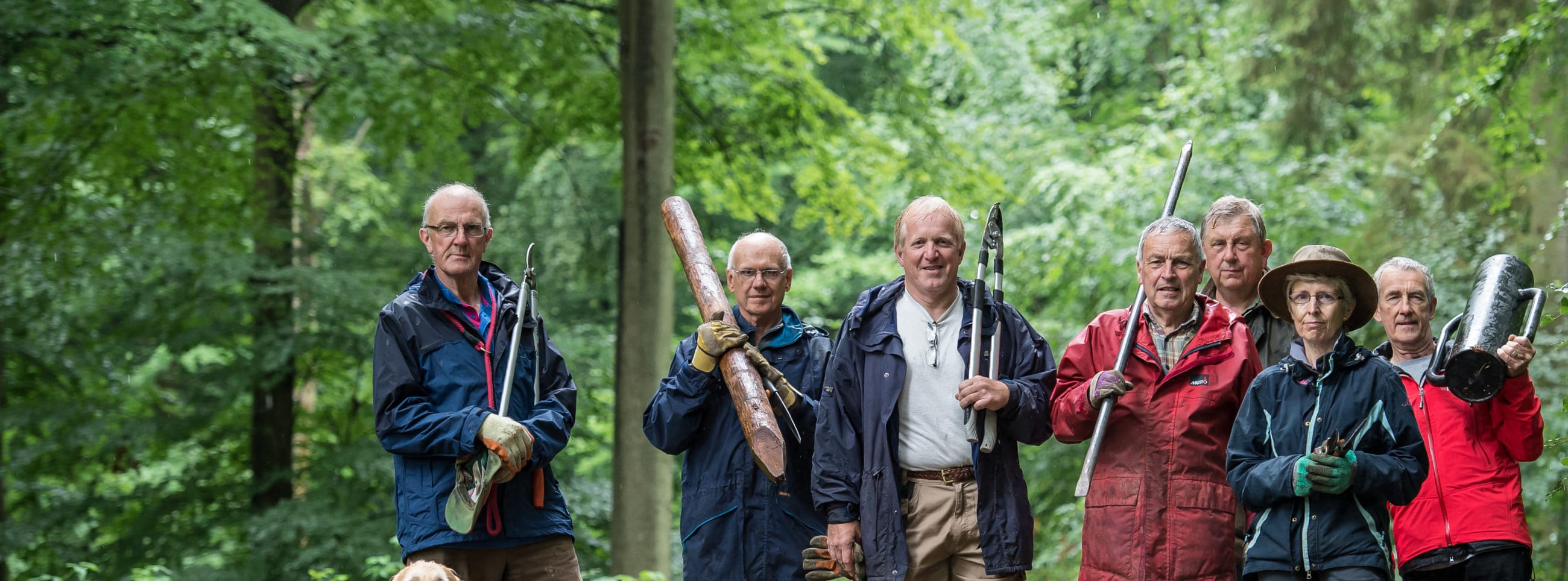
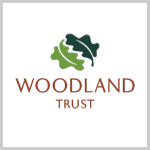
Vibrant internal communication takes root at Woodland Trust
Woodland Trust (the Trust) is an environmental charity for the protection and development of woodland in the UK. Spread over five offices and work-from-home locations, the staff are involved in various work, from hands-on woodland maintenance to active fundraising, to office-based administration.
The Trust wanted an internal communication tool that would allow all users–regardless of location, technical capabilities, or nature of work–to feel connected to the organization and each other. With an intensely passionate workforce, they wanted a place where everyone could be heard. Enter Jostle’s employee success platform.
Since adopting the Jostle platform, the Trust has significantly improved communication. Participation levels have remained above 90% since implementation two years ago. The new employee platform has helped surface the passion and commitment of the Trust’s workforce.
Who is Woodland Trust?
Woodland Trust is a UK-based woodland conservation charity. They aim to protect Britain’s ancient woodlands and encourage people to visit them. They focus on managing existing woodland, creating new woodland, and inspiring people across the nation to visit forests and plant trees. They interface with various people, including private and corporate landowners, central and local government, voluntary groups, schools, and the general public.
Woodland Trust has roughly 460 staff; over half are based in their headquarters in northern England. The remaining staff work from home or one of the Trust’s five satellite offices, spread across England, Scotland, Wales, and Northern Ireland. Together, the organization manages over 1,000 pieces of woodland across the UK.
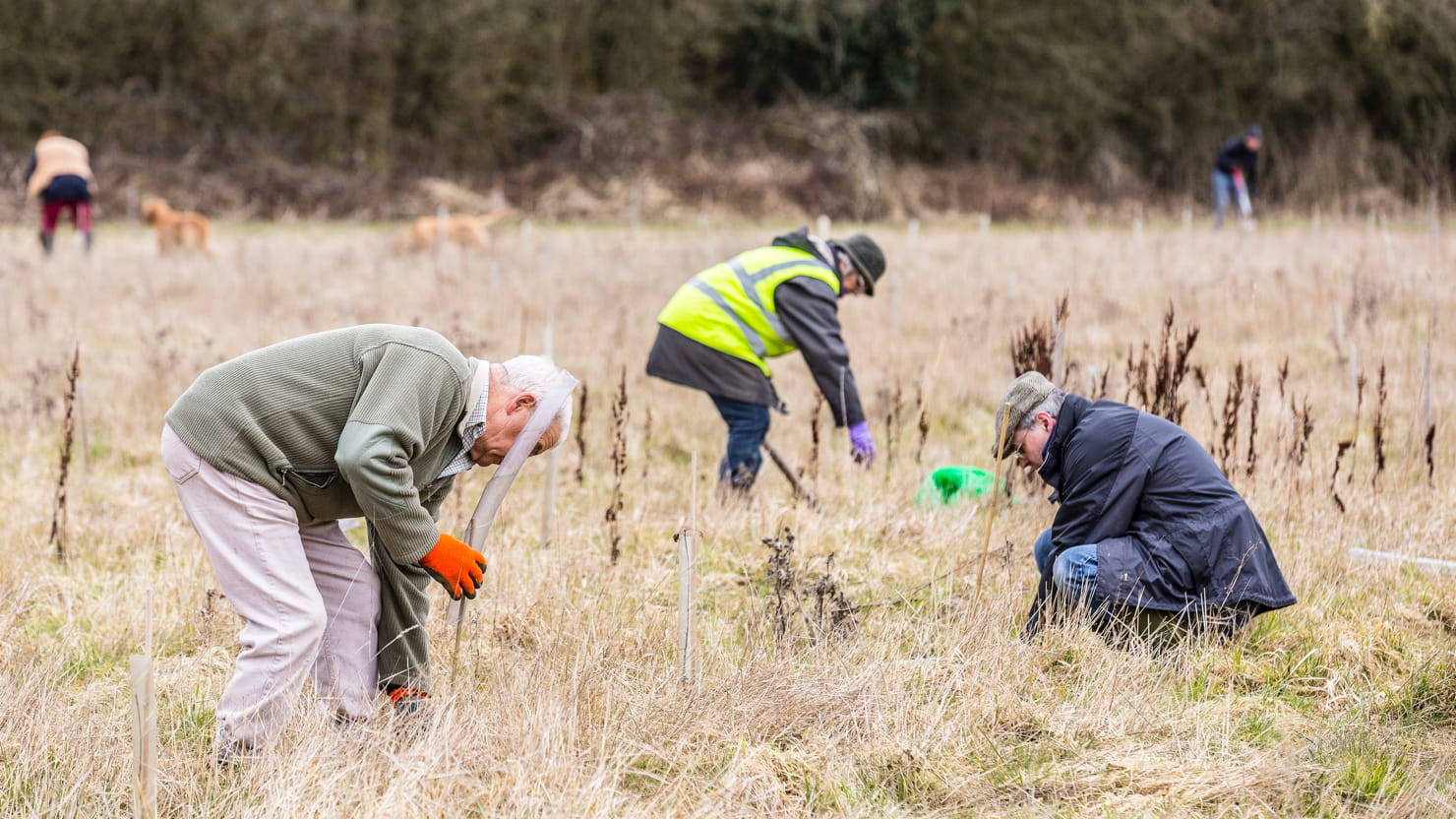
Woodland Trust currently plants over a million trees a year
Why did they need an employee platform?
With a large percentage of their workforce working remotely or from small satellite offices, Woodland Trust needed an online platform to communicate with staff effectively, ensure essential material was accessible, and improve connections and conversation throughout the organization. They also needed a space where the organization’s community and culture could thrive.
The organization’s workforce comprises passionate people who care deeply about what they do but often work in isolation. Although these individuals wanted to be heard and share their views with others, there was no mechanism for them to be engaged, connected, and recognized.
Woodland Trust previously used a Sharepoint intranet, appropriately named “Twig”. It hosted official documents, news items, and policies. Leadership found it was often hard to communicate using Twig; staff had to dig deep to seek out important information rather than it being easily accessible. While staff knew there was a lot of information out there, they frequently didn’t know where to look for it or why it was relevant to them.
“Prior to the Jostle platform, we had a Sharepoint intranet. It was full of things that were not relevant. Not updated. Not current. It was very difficult for people to find what they wanted. It was an out-of-the-box Sharepoint intranet–lots of lists, lots of documenting.”
Ian Teague
Head of IT
More importantly, Twig only served as a one-way communication tool. Even if staff found the information they needed, they couldn’t comment, provide feedback or communicate their ideas. Communication only came from the top of the company. “It wasn’t very interactive. It was very much a here-it-is, do what you want with it, and very little else,” said Anne Lightowler, Head of HR at Woodland Trust. “It was a barren kind of place to be in terms of communication. Woodland people are passionate and need a place to voice their ideas and views with other like-minded people.”
In short, Twig didn’t seem to be cutting it. In a 2010 employee engagement survey, the effectiveness of internal communication ranked as one of the lowest scoring categories across the company. In 2012, it had sunk even further. After this second survey, Woodland Trust realized they needed to devote more time to internal communications. There was an entire workforce that felt they weren’t being communicated to or included.
It was important to the Trust that staff were not only receiving important information but that the conversation went two ways. They wanted to have a space where their staff could get involved and for it not to feel like the leadership team was simply telling and not listening.
With such a dispersed workforce, in which some people can complete their work from home or in isolation, the Trust recognized that improving their online community would be essential to better communication and better connectivity at all levels of the organization.
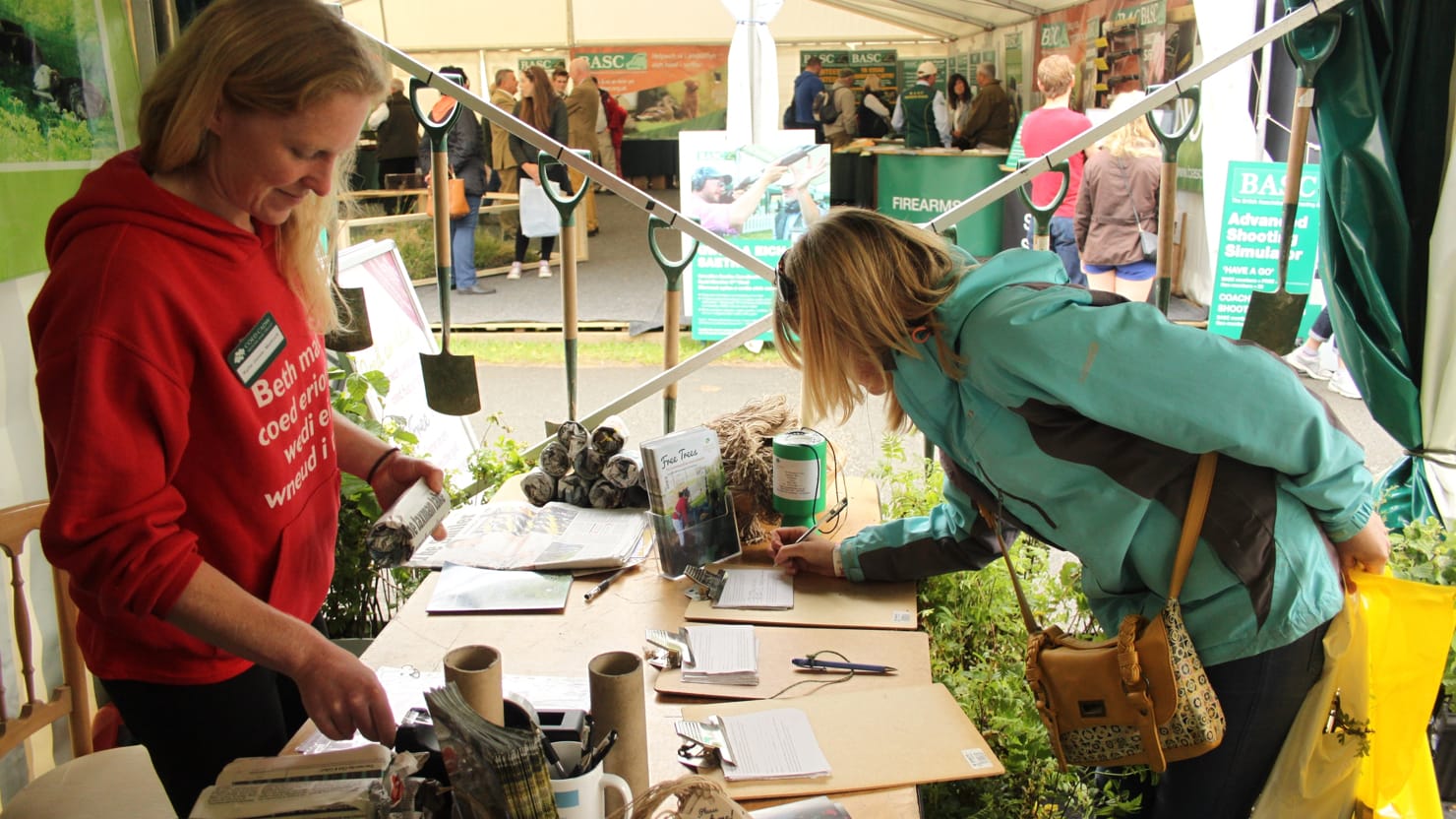
Raising funds and awareness at public events
A new way forward
Equipped with the knowledge that communication was minimal and the Sharepoint intranet was clunky and challenging to navigate, Woodland Trust set out to find a tool that would be dynamic, clear, and easy for everyone to use. They needed a platform that everyone could understand and engage with, regardless of how basic their technological skills were. Jostle was precisely what they were looking for.
“We have quite a wide spectrum that we cater for, which sometimes causes problems from an IT point of view. One of the things that we liked about Jostle was the technology threshold that you have to overcome in order to use; it was so low that we thought that everybody could do it.”
Ian Teague
Head of IT
On the back end, it was also important that the platform be easy to implement and manage. Woodland Trust doesn’t have a large HR or IT team, so the platform needed to function without draining precious time while satisfying the requirements of both the IT and HR departments. “One of the things we were looking for was something that would be, in effect, self-managing and would require minimal supervision and administration from me or the IT team,” said Ian Teague, Head of IT at Woodland Trust. “That's what was so attractive about the Jostle platform. It could remain active and vibrant without HR and IT having to do much work to maintain it.”
Before rolling out Jostle, Woodland Trust was mindful of striking a balance between raising excitement for the new tool and raising hopes that one tool could resolve every issue for every member of staff. They wanted staff to embrace the new tool, but they didn’t want them to expect too much. “We didn’t say, ‘This is the solution that’s going to end world poverty and create world peace,’” Ian told us. “We said, ‘This is so much better than what we’ve had before. Try it.’”
In preparation for the launch of Jostle, Woodland Trust pre-populated their Jostle platform with information, prepared a few articles that would be ready for posting, and sent out a short user guide to all staff that explained what to expect from the new platform. They also ran a ‘Jostle’s Coming’ campaign, which featured a well-received cake on launch day.
As things got up and running, the platform administrators monitored the pages for any questions from staff and responded with answers and solutions to their queries. They also started a conversation about the new tool in Discussions on Jostle. They asked staff what they would like to see on the platform and what they could improve on. They invited people to converse from the beginning, giving them a voice and a way to become involved.
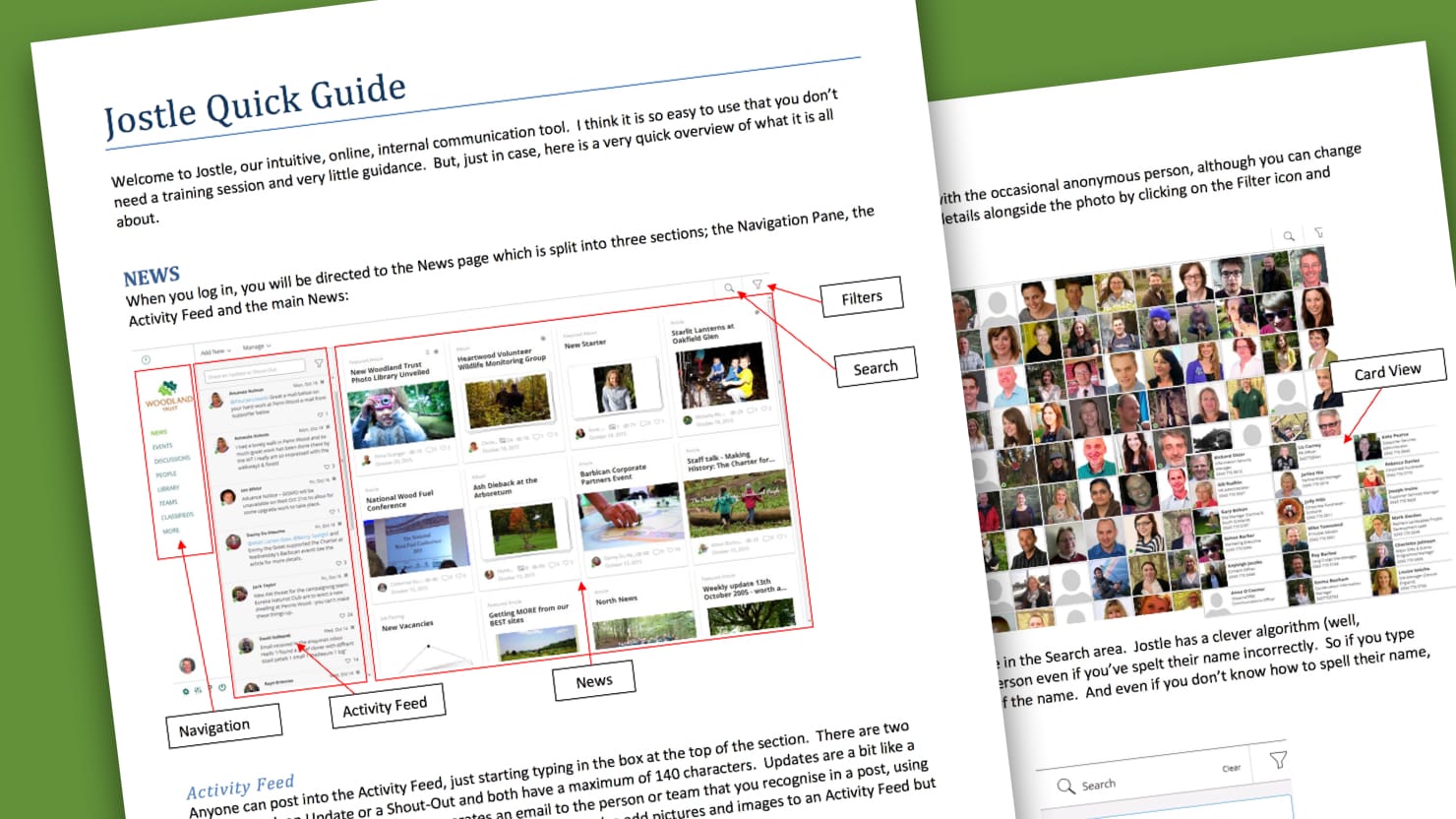
Woodland Trust created a short and simple user guide before rolling out their new employee platform
What are the results?
From the outset, Jostle experienced extremely high participation rates, consistently seeing over 90% employee participation across the 28-day cycle. Woodland Trust staff are logging in from all over Britain to find out what’s happening at head office and what their peers are involved with on the other side of the country. Multi-directional conversations across the organization are finally possible, community and interaction have blossomed, and it’s no longer a chore to stay in the loop with the organization’s news.
The easy and encouraging uptake of Jostle has been a pleasant surprise for the leadership team. Despite the fact that many of their staff could easily exist in isolated bubbles and complete their day jobs without interacting with their peers, they’re logging on to read and share. Corporate culture is no longer something to wish for; staff are involved, interested, and contributing.
“The Jostle platform is absolutely the most visited site in our organization. Not even Google can compete.”
Anne Lightowler
Head of HR
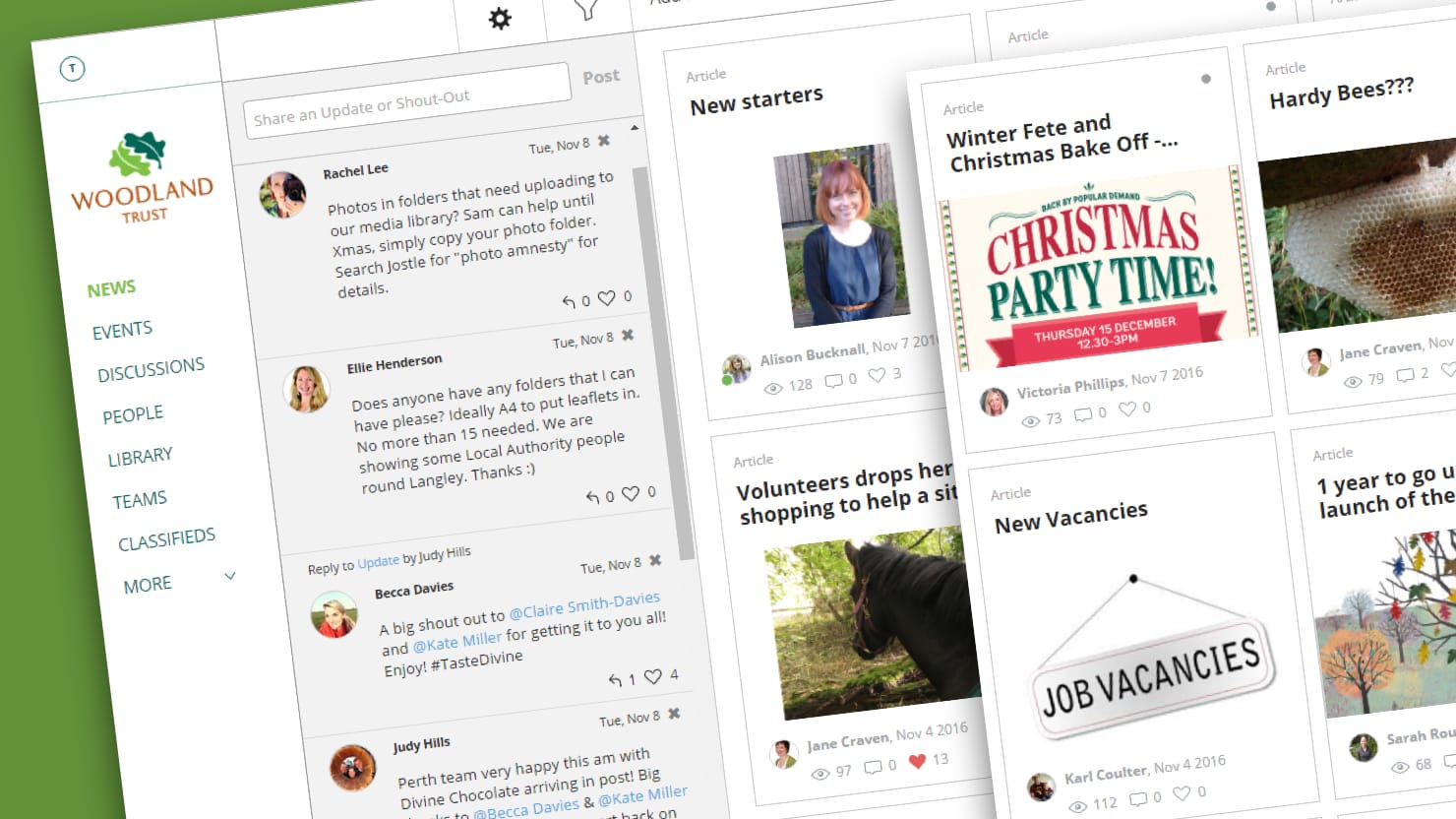
Woodland Trust’s News is active with contributions from employees around the country
Leading by example
While the staff’s uptake and interest in Jostle has been organic, Woodland Trust’s leadership played a key role in setting the platform's tone. Their CEO, Rebecca Speight, is an advocate for Jostle and uses it to post a monthly update called ‘Beccy’s Blog.’ In a casual style, she writes about what the senior team has achieved during the previous month and the organization’s aspirations for the next month.
Anne said: “It’s where, if you want, you can get inside the head of our Chief Executive; it’s where you naturally go to see what she’s thinking and how she’s feeling about the organization. Her blog is consistently one of the most read articles. People are clearly engaging in a way I haven’t seen before.”
Communication and culture are growing
As much as Jostle is the place to find out what’s going on in the organization, it’s also the place for staff to post anything they think is important to their peers. The number of contributors to News on the site has grown exponentially since the platform launched as more people are looking to get involved, share, and celebrate their work. Over 10% of the organization are News Reporters who can contribute and share content and ideas as they choose. This exemplifies the open and inclusive culture at Woodland Trust. Ian said: “People are very proud of what they've done and what they're doing. They want to make the rest of the organization aware of that. The Jostle platform is the place for that news to get spread.”
Not only are staff engaging with messages from the leadership team, but they’re also volunteering their own stories, commenting on posts, and actively engaging in discussions. “I see some of our more ardent environmentalists - and this is about their personal views as much as their work views - really contributing to some of the Discussions with their pictures and stories,” said Anne. “It’s a joy.”
Woodland Trust is also noticing that there’s a broader range of people getting involved. “Jostle has given a voice to people who wouldn’t have been engaged in anything else that was going on in the organization prior to the new platform,” shared Anne. “They’re very comfortable interacting through Jostle as opposed to actually speaking up in person.” The new platform provides a forum that allows some of their more introverted staff members to contribute to company culture and become part of the fabric that makes up the company.
Ian shared: “One of the most active discussion groups is one called ”Natural History - Show and Tell”. We have lots of supporters who send us pictures of interesting flora and fauna that they have found in our woods and ask us to identify them. These are posted in the Discussion and what’s remarkable is that the responses don’t just come from the known experts within the Trust. Jostle has allowed people who wouldn’t normally be consulted to display their wide range of Natural History knowledge. We could never have done that using our previous intranet, and therefore, as a result of implementing Jostle, we’re able to provide a better service to our supporters.”
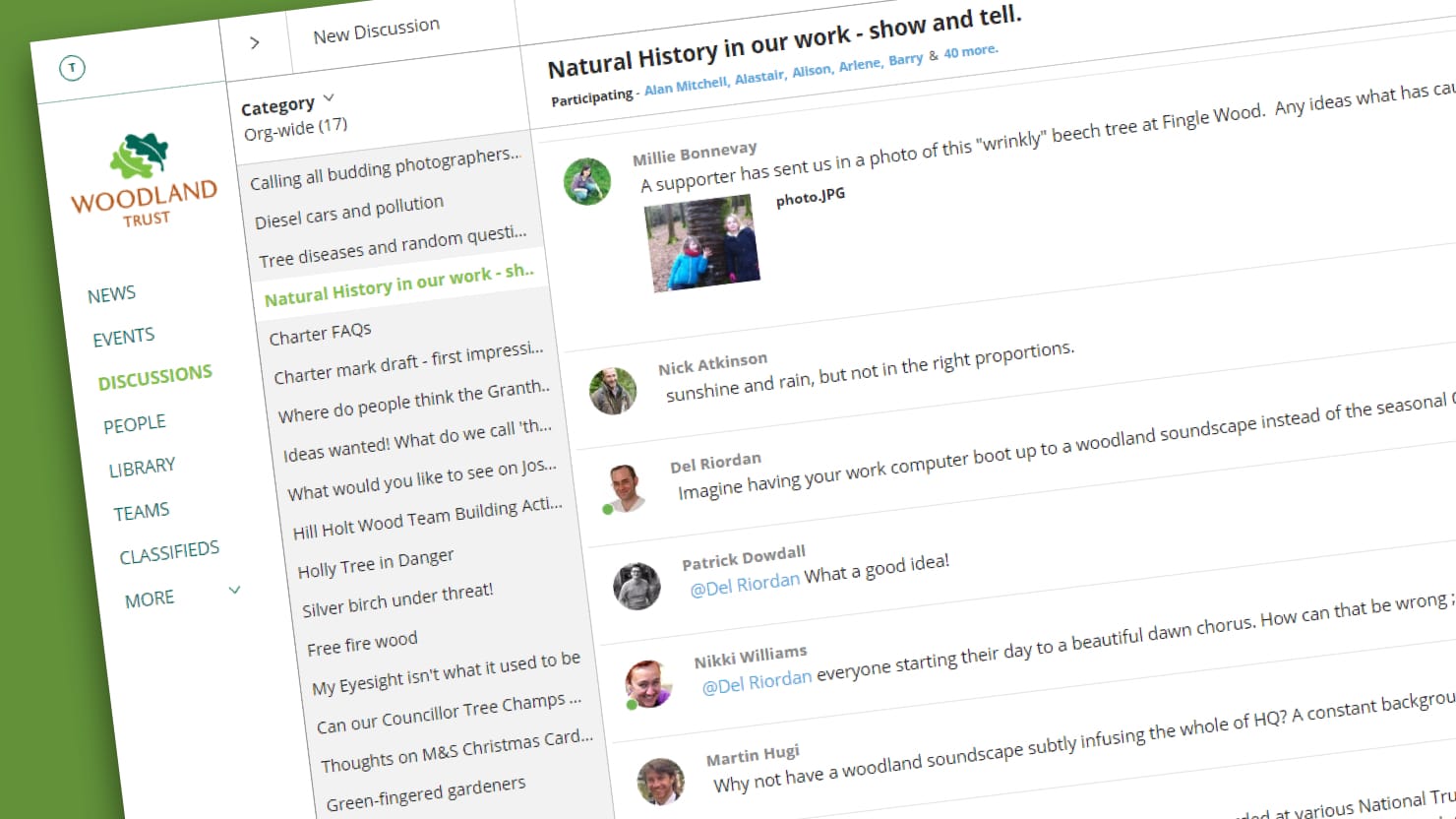
Discussions connect people across the company: they provide a place for people to chat and learn from one another
Listening to feedback
Woodland Trust has taken its collaboration a step further and is using Discussions to gather ideas from their staff about ecological improvements they would like to see within the organization. These ideas get collated and addressed at a quarterly meeting, in which management assesses what’s possible and effective to implement. The minutes from the meeting are posted publicly in the discussion.
To date, this approach has resulted in real and tangible changes, as the Trust has switched to an electricity supply provided by 100% renewable resources for the organization’s headquarters and is planning to introduce electric vehicles. The real outcome? A transparent organization that’s able to hear what its staff has to say, clearly show that they’re listening, and make the changes that matter to its people.
“I think Jostle has definitely changed the way we interact. It’s definitely brought the organization closer together.”
Anne Lightowler
Head of HR
What’s next?
Implementing a 10-year strategy
At the end of 2015, Woodland Trust launched their ambitious new 10-year strategy. They plan to grow threefold and plant 65 million trees in the next decade. To put this into context, Woodland Trust has planted 35 million trees in the past 30 years. They’ll go from planting just over a million trees annually to 6.5 million trees yearly.
When rolling out these goals and managing the changes accompanying them, it’s vital for the information to reach all staff. “We’re talking about strategy here,” said Anne. “This is the stuff our staff need to know. This will impact how they do their jobs.”
Rather than using long emails or a complex Sharepoint intranet, Woodland Trust relied upon the Jostle platform for their 10-year strategy announcements and details. With Jostle, Woodland Trust was able to make sure everybody had the same information at the same time and in the same format. Also, thanks to the high participation rates, they knew this was the best avenue to get the information into everyone’s hands. They could be sure that the workforce was reading the news and staying abreast of changes within their organization.
“It was very powerful to be able to clearly state: ‘This is information from your CEO about the next 10 years at Woodland Trust.’ We were able to use Jostle to make sure that everybody had this critical information.”
Anne Lightowler
Head of HR
Helping new employees branch out
For new employees–of which there will be many during this growth period–Jostle plays a significant role in their onboarding. Their induction into the organization is seamless, and the information they require is easily accessible. Due to the dynamic online community, new employees are immersed in the company's culture from day one, regardless of their location. They can find out who’s who, understand their place within the organization, the importance of their role, and see common-minded people accomplish things together. “It’s about making sure we’re using our internal communications, for which Jostle is clearly key, to help embed new people in to get them up and running,” said Anne.
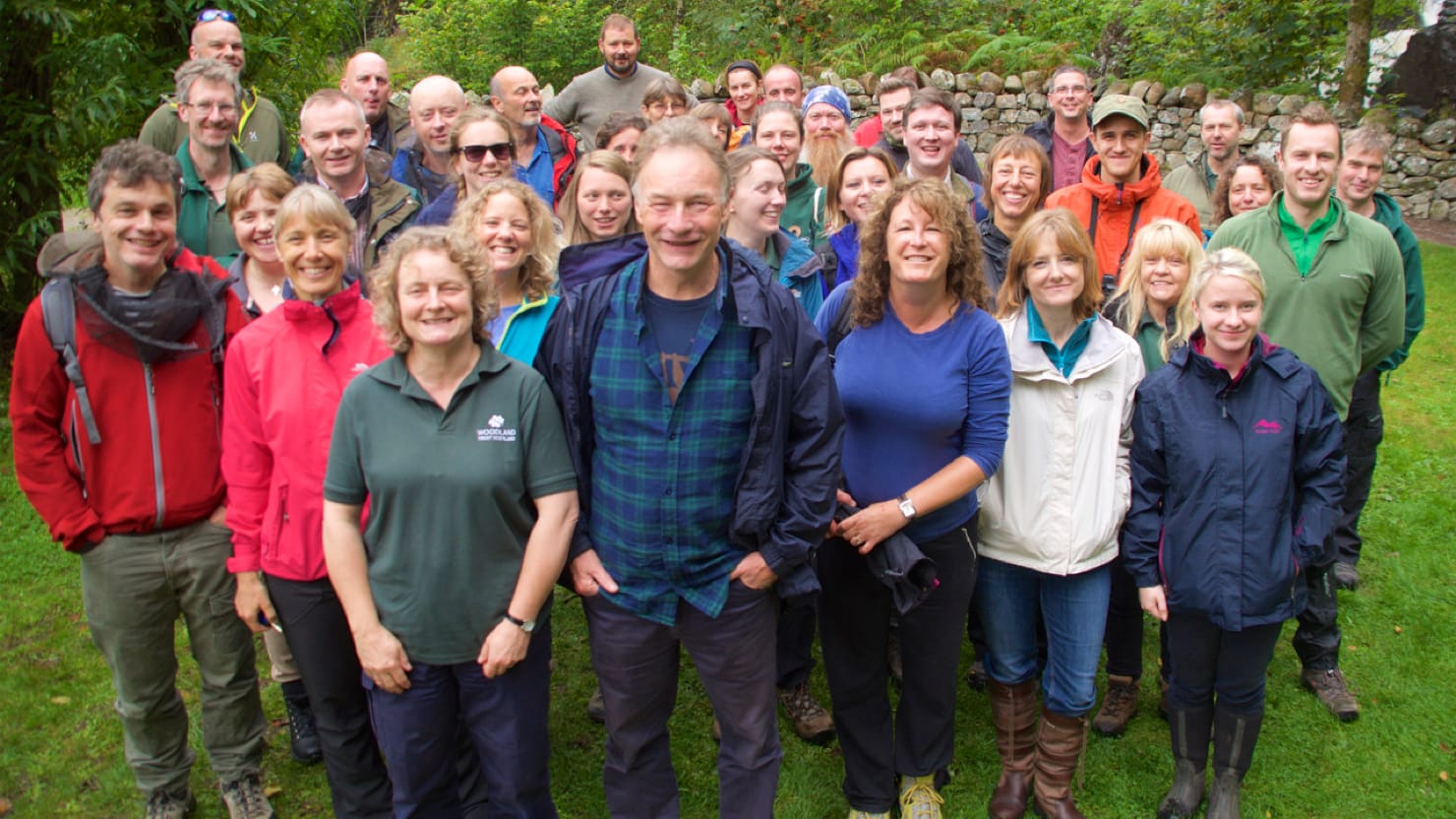
Woodland Trust’s team from Scotland
Measuring change
In Autumn of this year, Woodland Trust will have their first employee survey since implementing Jostle. While the leadership team cannot predict the feedback they’ll get from this survey, they feel they’re in a much stronger place regarding internal communication. “I’m excited and scared,” said Anne, “but I feel what we’ve been experiencing is internal communication at its best. We’re in a much better place than we were two years ago.”
Where the organization once had a one-way flow of unengaging information, they now have an easy-to-use platform that has improved company-wide communication and allowed for a vibrant community to take root. Jostle has become the place where employees can listen and be heard. It hosts everything from employees’ personal stories to the company’s announcement on their Brexit stance. It’s common knowledge - if something is happening within the company, it’s happening on the Jostle platform.
The energy and engagement surrounding this digital meeting place suggest Woodland Trust have successfully transformed their communication across the company and established a strong foundation upon which they can continue to grow. We’re excited to hear the results of their upcoming survey and further support their ambitious expansion and inspiring corporate objectives.

Woodland Trust works with schools to educate children about the importance of the UK’s woods and forests
Looking to improve two-way communication at your organization? Get demo